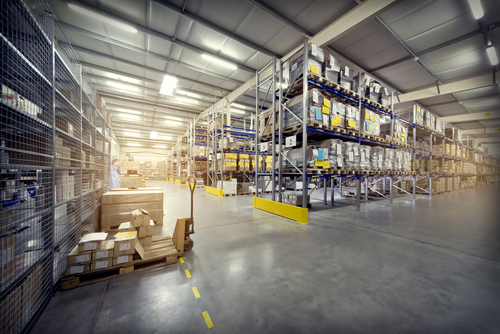
Ahmedabad, the vibrant metropolis of Gujarat, is rapidly emerging as a major hub for warehousing and logistics in India. With its strategic location, robust infrastructure, and a thriving business environment, Ahmedabad offers a multitude of opportunities for businesses looking to establish or expand their presence in the warehousing sector. In this article, we will delve into the significance of warehouses in Ahmedabad, exploring their role in driving economic growth, promoting innovation, and enhancing the overall logistics landscape of the region.
1: Ahmedabad’s Strategic Location
One of the primary factors contributing to the rise of warehouses in Ahmedabad is its strategic location. Situated in the heart of Gujarat, Ahmedabad serves as a pivotal junction for goods movement within the state and across the nation. The city’s proximity to major industrial zones and ports like Mundra and Kandla makes it an ideal choice for businesses seeking efficient transportation of goods to various parts of India and the world.
2: Robust Infrastructure
Ahmedabad boasts a well-developed infrastructure that plays a pivotal role in the growth of the warehousing sector. The city is connected by an extensive network of highways and railways, ensuring smooth transportation and distribution of goods. Additionally, the presence of an international airport, Sardar Vallabhbhai Patel International Airport, facilitates the easy movement of cargo, making it a preferred location for air cargo logistics.
3: Diverse Industries
Ahmedabad is home to a diverse range of industries, including textiles, pharmaceuticals, chemicals, and electronics, among others. This diversity creates a high demand for warehousing solutions to store raw materials, finished products, and inventory. The presence of warehouses near these manufacturing hubs reduces transportation costs, minimizes lead times, and enhances the efficiency of the supply chain.
4: Economic Growth and Investment
The warehousing sector in Ahmedabad has experienced remarkable growth due to increased investment and business activities in the region. Various government initiatives, including the ‘Make in India’ campaign, have attracted both domestic and international investors, leading to the development of state-of-the-art warehouses. The surge in warehousing investments not only boosts the economy of Ahmedabad but also generates employment opportunities for the local population.
5: Role in E-Commerce
The e-commerce industry in India has witnessed exponential growth in recent years, and Ahmedabad has emerged as a prominent player in this sector. E-commerce giants and startups alike are setting up warehouses in and around Ahmedabad to serve the burgeoning online market. These warehouses are equipped with modern technology and advanced logistics solutions to meet the rising demands of fast-paced e-commerce operations.
6: Technological Advancements
Warehouses in Ahmedabad are not just spaces for storing goods; they are also hubs of innovation. Many businesses are incorporating cutting-edge technology into their warehousing operations. Automated storage and retrieval systems, IoT-enabled devices, and data analytics tools are being utilized to optimize inventory management, enhance order processing, and improve overall warehouse efficiency.
7: Sustainable Warehousing
Ahmedabad is also embracing sustainable warehousing practices, aligning with global environmental trends. Warehouses in the region are increasingly adopting green technologies, energy-efficient designs, and waste reduction measures. These efforts not only reduce the environmental footprint but also result in cost savings for businesses.
8: Evolving Regulations
The warehousing industry in Ahmedabad is subject to evolving regulations and compliance standards. With the introduction of the Goods and Services Tax (GST) in India, there has been a significant impact on warehousing and logistics operations. Ahmedabad’s warehousing ecosystem is adapting to these changes by implementing efficient tax management systems and complying with GST guidelines.
9: Challenges and Opportunities
While the warehousing in Ahmedabad is on a trajectory of growth, it also faces certain challenges. The shortage of skilled labor and the need for specialized training in warehouse operations are some of the workforce-related challenges. Additionally, ensuring the security of goods stored in warehouses remains a critical concern.
However, these challenges also present opportunities for the growth of auxiliary services such as workforce training and security solutions. As the demand for warehousing increases, service providers can capitalize on these opportunities to support the evolving needs of the industry.
10: The Way Forward
In conclusion, Ahmedabad’s warehouses are not merely storage spaces but dynamic hubs that drive economic growth, innovation, and efficiency. Their strategic location, robust infrastructure, and integration of technology have made them indispensable components of the city’s business landscape. With the ongoing investments, diversification of industries, and a focus on sustainable practices, the future of warehousing in Ahmedabad looks promising.
Businesses that leverage the potential of Ahmedabad’s warehouses can tap into a growing market, reduce operational costs, and enhance their overall competitiveness. As the warehousing sector continues to evolve and adapt to the changing economic landscape, Ahmedabad stands as a beacon of opportunity and progress, making it a city to watch in the world of warehousing and logistics.
Also Read: Unlocking the Potential: Exploring the Dhulagarh Warehouse Hub